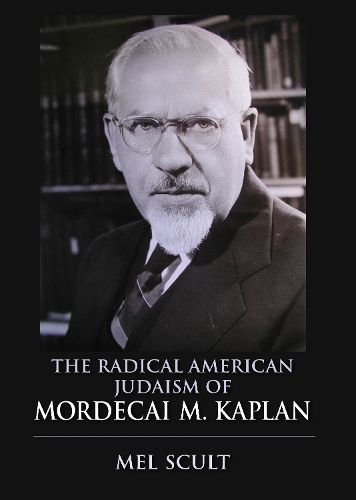Readings Newsletter
Become a Readings Member to make your shopping experience even easier.
Sign in or sign up for free!
You’re not far away from qualifying for FREE standard shipping within Australia
You’ve qualified for FREE standard shipping within Australia
The cart is loading…






Mordecai M. Kaplan, founder of the Jewish Reconstructionist movement, is the only rabbi to have been excommunicated by the Orthodox rabbinical establishment in America. Kaplan was indeed a radical, rejecting such fundamental Jewish beliefs as the concept of the chosen people and a supernatural God. Although he valued the Jewish community and was a committed Zionist, his primary concern was the spiritual fulfillment of the individual. Drawing on Kaplan’s 27-volume diary, Mel Scult describes the development of Kaplan’s radical theology in dialogue with the thinkers and writers who mattered to him most, from Spinoza to Emerson and from Ahad Ha-Am and Matthew Arnold to Felix Adler, John Dewey, and Abraham Joshua Heschel. This gracefully argued book, with its sensitive insights into the beliefs of a revolutionary Jewish thinker, makes a powerful contribution to modern Judaism and to contemporary American religious thought.
$9.00 standard shipping within Australia
FREE standard shipping within Australia for orders over $100.00
Express & International shipping calculated at checkout
Mordecai M. Kaplan, founder of the Jewish Reconstructionist movement, is the only rabbi to have been excommunicated by the Orthodox rabbinical establishment in America. Kaplan was indeed a radical, rejecting such fundamental Jewish beliefs as the concept of the chosen people and a supernatural God. Although he valued the Jewish community and was a committed Zionist, his primary concern was the spiritual fulfillment of the individual. Drawing on Kaplan’s 27-volume diary, Mel Scult describes the development of Kaplan’s radical theology in dialogue with the thinkers and writers who mattered to him most, from Spinoza to Emerson and from Ahad Ha-Am and Matthew Arnold to Felix Adler, John Dewey, and Abraham Joshua Heschel. This gracefully argued book, with its sensitive insights into the beliefs of a revolutionary Jewish thinker, makes a powerful contribution to modern Judaism and to contemporary American religious thought.